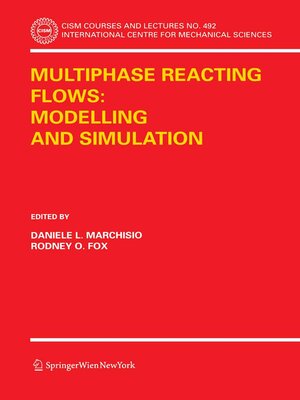Multiphase reacting flows
ebook ∣ modelling and simulation · CISM International Centre for Mechanical Sciences
By Daniele L. Marchisio

Sign up to save your library
With an OverDrive account, you can save your favorite libraries for at-a-glance information about availability. Find out more about OverDrive accounts.
Find this title in Libby, the library reading app by OverDrive.



Search for a digital library with this title
Title found at these libraries:
| Library Name | Distance |
|---|---|
| Loading... |
This book entitled ''Multiphase reacting flows: modelling and simulation'' contains the lecture notes of the CISM (International Centre for Mechanical Sciences) course held in Udine, Italy, on July 3-7, 2006, and it describes various modelling approaches for dealing with polydisperse multiphase reacting flows. A multiphase reacting system is characterized by the presence of multiple phases and in this book we focus on disperse multiphase systems, where one phase can be considered as a continuum, whereas the additional phases are dispersed in the continuous one. In other words, in this book we deal with multiphase systems constituted by particles, droplets or bubbles (i.e., solid particles suspended in a continuous liquid phase, liquid droplets in a gaseous phase, or gas bubbles in liquid.) The other important characteristic elements of the systems discussed in this book are the presence of one or more chemical reactions and the turbulent nature of the flow. The chemical reactions usually involve all the phases present in the system and might be responsible for the formation or disappearance of the disperse and/or continuous phases. The evolution of the different phases is not only governed by chemical reactions, but also by other fluid-dynamical interactions between the continuous and the disperse phases, and by interactions among elements of the disperse phases, such as coalescence, aggregation, agglomeration and break-up.







